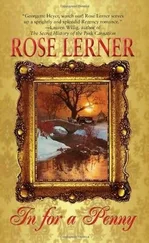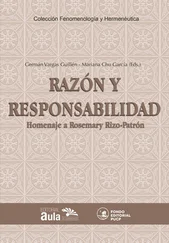“So at the beginning of my story of origins is a false memory of a moving image. I didn’t see it live. What I saw was a televised speech that wasn’t written by anyone, but that, through its rhythmic structure, was briefly available to everyone; the next day I went to school and another powerfully unoriginal linguistic practice enveloped me, an unsanctioned ritual of call-and-response that was, however insensitively, a form of grieving. If I had to trace my origins as a poet to a specific moment, I’d locate it there, in those modes of recycling. I make no claims for ‘High Flight’ as a poem — in fact, I think it’s a terrible poem — and Ronald Reagan I consider a mass murderer. I don’t see anything formally interesting about the Challenger jokes, I can’t find anything to celebrate there; they weren’t funny even at the time. But I wonder if we can think of them as bad forms of collectivity that can serve as figures of its real possibility: prosody and grammar as the stuff out of which we build a social world, a way of organizing meaning and time that belongs to nobody in particular but courses through us all. Thank you.”
I thought the applause for my remarks was enthusiastic, but I might well have been mistaken, because almost none of the questions in the ensuing conversation was addressed to me; the other two writers on the panel were much better known. I sat in a modernist leather chair on the stage at Columbia’s School of the Arts, unable to see the audience clearly because of the tungsten lights, a distinguished professor of literature moderating, and mainly listened to the distinguished authors — so distinguished I’d often thought of them as dead — talk about the origins of their genius. (Would you believe me if I said that one of the distinguished authors was the same South African man I’d observed from across the room at Bernard and Natali’s fifteen years before?) There were the usual exhortations to purity — think of the novel not as your opportunity to get rich or famous but to wrestle, in your own way, with the titans of the form — exhortations poets don’t have to make, given the economic marginality of the art, an economic marginality that soon all literature will share.
But at the elegant dinner the distinguished professor had arranged for us after the panel, all the initial small talk was about money: had you heard about X’s advance, how much money Y received when her aggressively mediocre book was optioned for film, and so on. After two quick glasses of Sancerre, the distinguished male author started holding forth, periodically tugging at his salt-and-pepper beard, his signature gesture, moving from one anecdote about a famous friend or triumphant experience to another without pausing for the possibility of response, and it was clear to everyone at the table who had any experience with men and alcohol — especially men who had won international literary prizes — that he was not going to stop talking at any point in the meal. Unless he dissects, I thought. When a young Latino man tried to refill his glass of water from a pitcher, the distinguished male author snapped in Spanish, without looking at the man, that he was having sparkling water, and then switched back into English without missing a beat. The distinguished professor was sitting immediately across from the distinguished male author and seemed more than happy to receive his logorrhea; a younger woman — probably also an English professor, but too young to be distinguished — was sitting beside him, smiling bravely, realizing her evening was doomed.
I was on the other side of the table sitting across from the distinguished female author, enjoying how the crispness and lightness of the wine had a rightness of fit with the restaurant’s pear-wood paneling and bright terrazzo floors. Seated to my right was a well-dressed graduate student about my age who was plainly starstruck by the distinguished female author, perhaps the subject of his dissertation. To the distinguished female author’s left was her husband, probably also distinguished in some way, who had the look of many husbands: eyebrows perpetually raised a little in a defensive mask of polite interest, signifying boredom. I was unsure if I should say gracias or thank you to the man refilling my water glass. Even here, where a meal for seven would cost at least a thousand dollars, much of the work was done by a swift underclass of Spanish-speaking laborers. I thought of Roberto, of his terror of Joseph Kony. I tried to picture, as I looked around the restaurant, those towns in Mexico in which almost all of the able-bodied men were gone, employed now in New York’s service industry.
“I enjoyed your story in The New Yorker ,” the distinguished female author said to me. It seemed that the story — which was in part the result of my dealing with the reception of my novel — had been much more widely read than the novel itself.
“Thank you,” I said. And then I said, although I had only read one of her books and it hadn’t made much of an impression on me, “I’ve long been an admirer of your work.” She smiled with only the left side of her mouth in a way that doubted the statement; I found the expression winning.
“Do you have a brain tumor?” she asked. I was impressed less with her frankness than with the fact that it appeared she’d actually read the story.
“Not that I know of.”
“Is it part of a longer work?”
“Maybe. I think I might try to make it into a novel. A novel in which the author tries to falsify his archive, tries to fabricate all these letters — mainly e-mails — from recently dead authors that he can sell to a fancy library. That idea was the origin of the story.”
“Why does he need the money? Or is the money what he wants?”
“I think it’s more a response to his own mortality — like he’s trying to time-travel, to throw his voice, now that he’s dealing with his own fragility. It starts off as a kind of fraud but I imagine he might really get into it, might really feel like he and the dead are corresponding. Like he’s a medium. But you wouldn’t know, even at the novel’s end, if he really planned to sell the letters or if he was just working on an epistolary novel of some sort. And he could meditate on all the ways that time is monetized — archival time, a lifetime, etc.” I was trying to sound excited about the project I was describing, but felt, despite the wine, dispirited: another novel about fraudulence, no matter the bruised idealism at its core.
I ordered an appetizer of charred shrimp with puntarelle, whatever that was, and seared scallops for my main course. I was told by the waiter that my choices were excellent. The distinguished female author said she’d also have the scallops, and that felt somehow like a gesture of fellowship.
The graduate student asked the distinguished female author what she was working on. “Absolutely nothing,” she said, with utter seriousness, and, after a brief interval of silence, we all laughed. Then she said to me, “Whom would he correspond with, what dead people?” The frustrated graduate student — he didn’t want to hear more about me — and the bored husband tried to make conversation. I could hear the distinguished male author droning on in the distance.
“Primarily poets, I guess. Poets I corresponded with a little — mainly for the magazine I used to edit and that the protagonist will have edited — and whose tone I know how to imitate. Robert Creeley comes to mind.”
“I used to know Creeley pretty well.” She sipped her wine. “Would you include real correspondence, too — I mean, do you have actual letters you received that you’ll insert into the fiction?”
“No,” I said. “Almost all the correspondence about the magazine was e-mail, and I had a different e-mail account for much of that time. I never printed anything. What I do have is boring, logistical.”
Читать дальше










